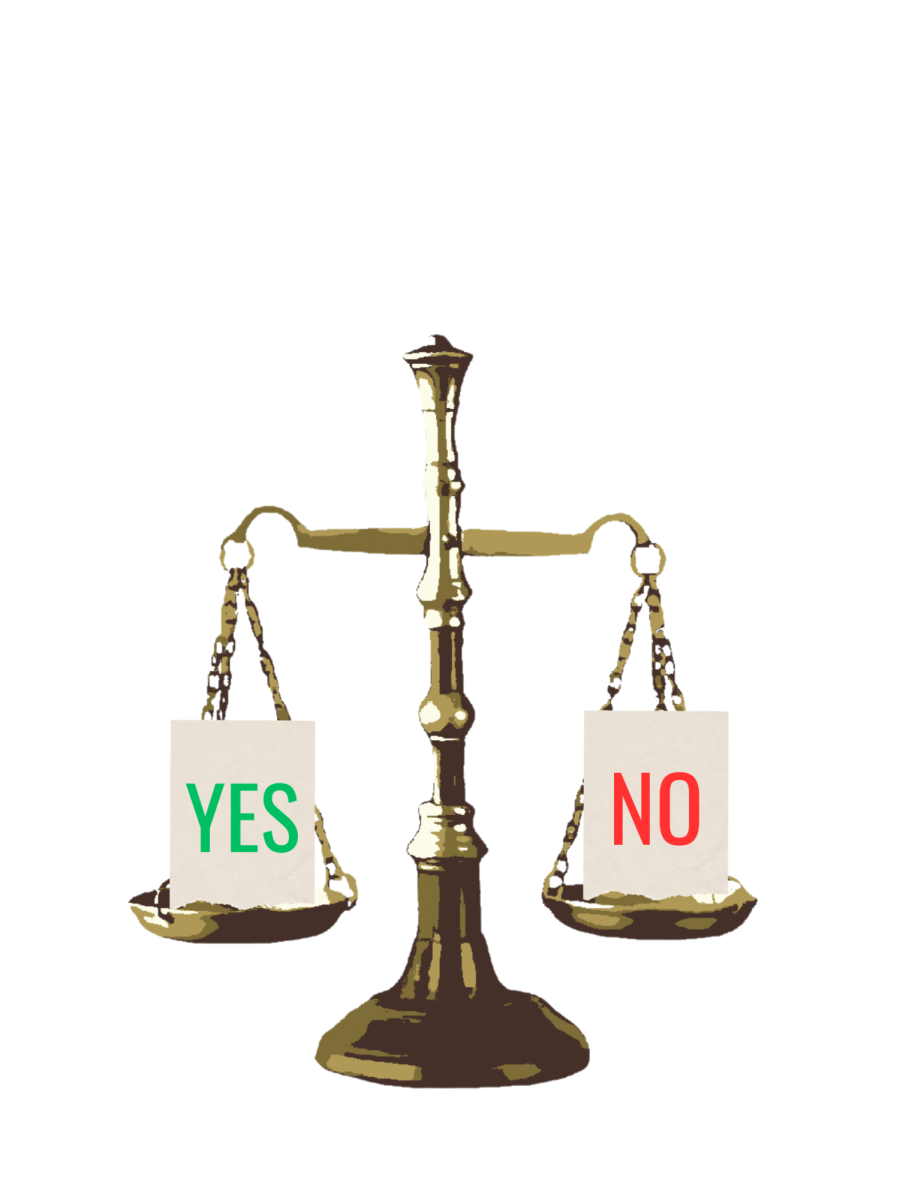What’s Going On?
After the 2020 election, on Jan. 6th, 2021, thousands of Trump supporters marched to the Capitol and engaged in violence under the false pretenses that the election was stolen. Trump’s speech in support of the protestors with statements like “fight like hell” has been called into question for inciting an insurrection. Fast forward to this year, Colorado and Maine have thrown Trump off the primary ballot for violating the Disqualification Clause. Under Section 3 of the 14th Amendment, “No person shall be…an officer of the United States… shall have engaged in insurrection or rebellion against the same, or given aid or comfort to the enemies thereof…” On Feb. 8, the Supreme Court of the United States held arguments over whether former President Trump should be eligible to run in Colorado’s primary ballot. On Mar. 4, the Supreme Court ruled unanimously that Trump can stay on the ballot.
Donald Trump is an enemy of democracy and should be treated as such. Trump now sits with a total of 91 felony counts from four separate court cases and owes over $500 million in legal fees and fines. Most importantly, his role in the January 6th insurrection against the United States Federal Government serves as sufficient grounds to expel the former President from the ballot per the Constitution.
Donald Trump has been temporarily taken off the ballot in both Colorado and Maine for violating Section 3 of the 14th Amendment, the Disqualification Clause, by participating in “insurrection or rebellion” and having “given aid or comfort to the enemies thereof.” By looking at the text of the Constitution, past precedent and historical background pertaining to the Disqualification Clause, legal scholars from both sides of the aisle have made compelling arguments for removing Trump from the ballot.
The best way to decide the future is to look to the past. Historically, Section 3 of the 14th Amendment has been used eight times from 1869 to 2022 to disqualify candidates. The most recent was Couy Griffin, a Republican County Commissioner in New Mexico, for joining and inciting the January 6th mob attack. Griffin was not accused of personally being violent or entering the Capitol building but was still expelled for aiding and abetting the insurrection. This same precedent should apply to Trump. The best way to make decisions for the future is to look to the past.
Trump’s lawyers argue that Trump should be innocent until proven guilty, as he has not been convicted of the four felony counts for attempting to overturn the 2020 election.
Historical precedent shows that a criminal conviction is not required for an individual to be disqualified under Section 3 of the 14th Amendment. Out of the eight individuals the clause has been applied to, five were never convicted of a crime.
Two of the most prominent conservative constitutional scholars in America, Professors William Baude & Michael Stokes Paulsen explain that when a candidate fails the rule of disqualification under Section 3, an officeholder is disqualified. Automatically.
In addition, the idea that Trump did not incite or aid the insurrection is inaccurate at best and dangerous at worst.
“It would be hard to describe the physical breaching of our capital and the harming and killing of guards of that capital with the explicit intent of undermining a democratic process like an election as anything other than an insurrection,” social science teacher Quinn McKenzie said. “I think it would be hard to say the man, [Donald Trump], that told those people to go there and ‘fight like hell’ was doing anything other than encouraging them to do those things.”
As Trump’s election interference trial gets pushed back time and time again, the verdict will not come before the election, so it falls upon the states to stop the former president from being on the ballot.
Trump’s lawyers also argued that the president is not an officer of the United States as it was not explicitly stated in the Constitution, therefore he is exempt from the Disqualification Clause. In the United States, there is no sovereign ruler, but instead, officers of the country, who are meant to serve and protect American interests. It seems farfetched to assume that the framers isolated almost every available position in public office but meaningfully left out the President. It is instead more likely that it was an implicit certainty that the most senior officer of the United States, the President, would be held liable if they “engaged in insurrection or rebellion.” The idea that Trump is above the law makes the presidency equivalent to a monarch.
“I don’t think that the President should have all-encompassing immunity for everything that they do while they’re in office,” senior Ayush Patel said. “It doesn’t set a good precedent for the future. Then they could, as president, murder someone and then after they leave office think, ‘I have immunity; it doesn’t matter.’”
Trump willfully engaged in inciting an insurrection and now must pay the piper. Though the initial intent of the framers was to prevent members of the Confederacy from gaining public office, attempting to subvert democratic norms to benefit personal interest is antithetical to the President envisioned by the Founding Fathers.
“Section 3’s disqualification clause has by no means outlived its contemplated necessity, nor will it ever, as the post–Civil War Framers presciently foresaw,” wrote former federal judge J. Michael Luttig and the Carl M. Loeb University Professor of Constitutional Law Emeritus at Harvard University Laurence H. Tribe. “To the contrary, this provision of our Constitution continues to protect the republic from those bent on its dissolution.”
The Constitution serves as the supreme law of the land and serves as a prerequisite to voting in the first place. Questions of political backlash and consequence should be secondary to upholding our founding document as the United States does not exist without a Constitution that is upheld on its merits.
The argument that disqualifying Trump could be a slippery slope to expel other candidates from the ballot is illogical as no other candidates have engaged or aided in insurrection or rebellion.
“I think to hold an insurrection against the government, you have to feel very strongly that something about the government is broken beyond repair,” McKenzie said. “If you feel that something beyond the government is broken beyond repair, I see no legitimate reason you would want to be a part of that government short of wanting to dismantle it.”
Donald Trump is a past, present and future threat to democracy. The judiciary must act swiftly and vigorously, to ensure a future in which those who wish to destroy our nation, can never be a leader of it.









